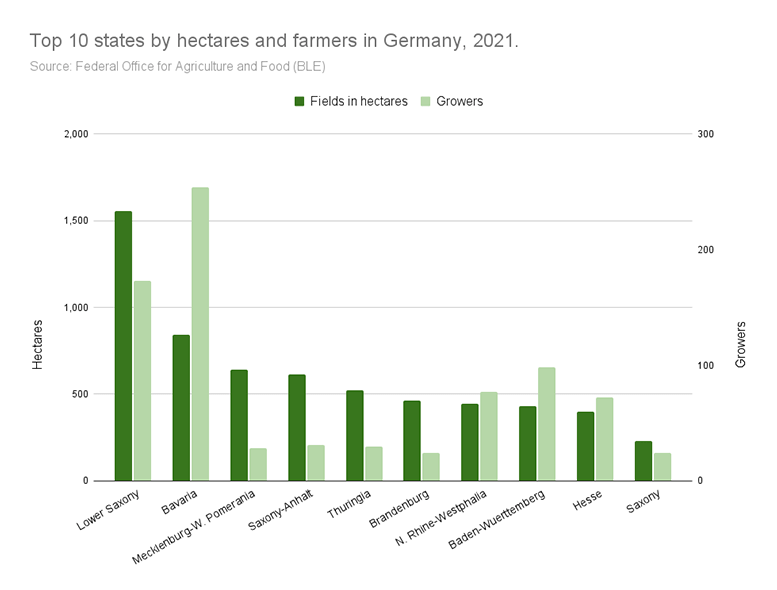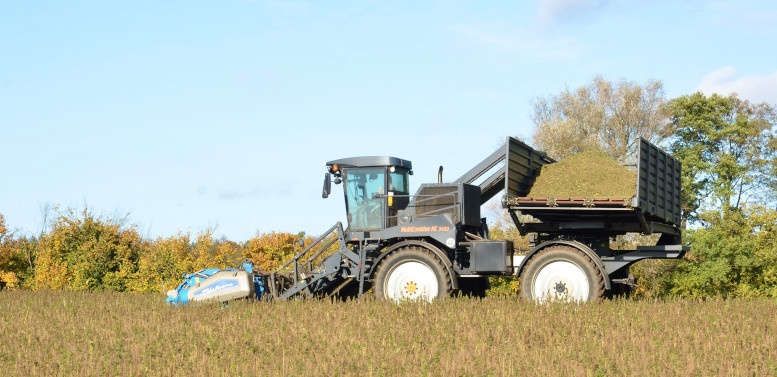Total hemp fields in Germany grew 17% to reach 6,444 hectares (~16,000 acres) in 2021 as the number of hemp farming operations reached 863, a 20% increase, according to the Federal Office for Agriculture and Food (BLE).
Lower Saxony led all German states with 173 growers putting in 1,555 hectares (~3,800 acres) this year.
Germany is primarily a hemp grain producer, but local production lags in a consumer market where hempseed has become widely known as food and hempseed oil as an ingredient in health and beauty products. That means Germany still must import hemp seed to meet total demand.
Stakeholders report that very little hemp was grown this year for CBD, and farming for hemp fiber is still marginal.

Well-positioned
Along with expanding hectarage and more players in Germany, hemp is well-positioned to play a significant role in the country’s drive to meet environmental goals, said Nando Knodel, a founder at HempConnect, a Hamburg-based startup that is developing carbon-tracking technology specifically for industrial hemp.
With the incoming German government expected to put major emphasis on meeting key climate goals over the next several years, farming hemp for carbon combined with other outputs means an enhanced business model for growers.
“We specifically see a complementary chance between the growing number of hectares for seed and the utilization of excess straw for nature-based carbon sinks like biochar or construction material,” Knodel said.
Promise in carbon
While carbon credits from agriculture are not yet traded in Europe’s established Emissions Trading System (ETS), discussions at the EU level indicate that the ETS will eventually embrace agriculture by 2024. Until that time farming carbon credits can be sold in private trading among individual entities.
Hemp is an unrivaled carbon sink in the field, and plant material can also be integrated into environmentally unfriendly industries, Knodel noted, meaning it does double duty as a lever toward sustainability.
“This will be a huge incentive for large emitters, such as big construction companies, to integrate hemp materials in their portfolios and consequently balance their emissions,” Knodel said.
Germany has allowed the farming of EU-registered industrial hemp varieties since 1996 under a 0.2% THC limit. The BLE registers and is responsible for THC compliance among growers, who must also be registered in their respective states.
Under German rules, growers must report the start of flowering to the BLE, which then tests samples on-site to determine THC content. Harvesting of industrial hemp fields may only begin once crops pass BLE inspection.

